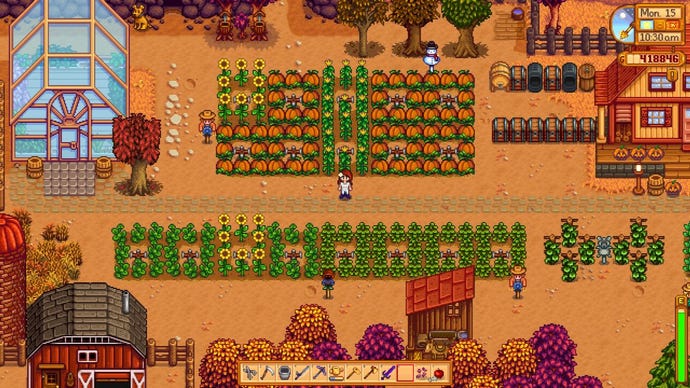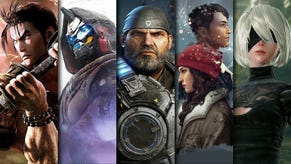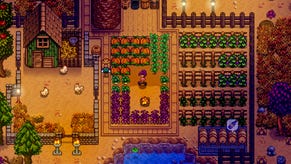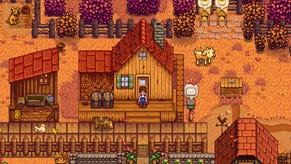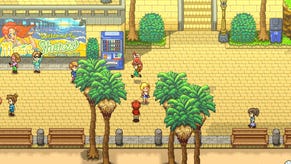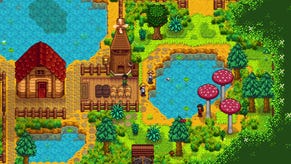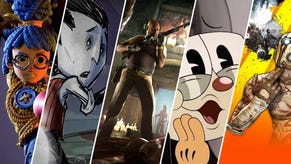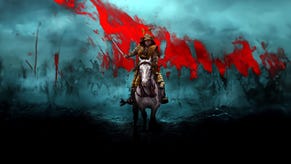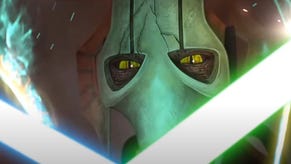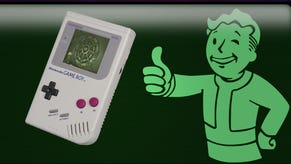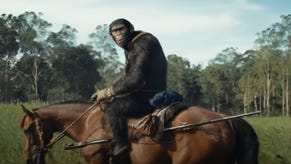How Stardew Valley helped me cope with depressive episodes
A few years ago, in an attempt to understand my own behaviour and increase my own theoretical knowledge, I picked up a variety of books which examined why video games mattered. Each investigated a different aspect of video games, whether it was the history or their influence on modern society, but one in particular stood out to me - Reality is Broken by game designer Jane McGonigal.
In this book, McGonigal explores the psychological needs video games fulfill, particularly for those who struggle with mental health issues, and argues that games have the potential to radically improve our day-to-day lives.
In truth, part of the reason I had picked up these books in the first place was for validation that my lifelong depression was not being intensified by my lifelong hobby. I desperately wanted an explanation for why I play video games more during a depressive episode, one that wasn’t simply "it’s escapism". Then I reached one particular line in Reality is Broken which will stay with me always, a quote by play theorist Brian-Sutton Smith: "The opposite of play is not work, it is depression."
"It’s a perfect description of the emotional state of gameplay," writes McGonigal about this quote. "A game is an opportunity to focus our energy, with relentless optimism, at something we’re good at (or getting better at) and enjoy. In other words, gameplay is the direct emotional opposite of depression."
As someone who finds themselves unable to relax when not working, this explanation makes sense to me. Games provide us with productive, hands on work away from dreary reality. We like to be challenged and stimulated in a way we control. However, when I'm not in the right frame of mind, I’m often overcome with guilt that I should be doing something ‘purposeful’ with my free time and sometimes my favourite games just don’t fulfill that need.
If I spend countless hours playing competitive matches and somehow manage to lose rank, or lose an established Sims family in a fire, it feels as though those hours have been wasted and I have nothing to show for it. I come away more stressed than I was when the session began, like a bad day at work. There's other times when I simply don't feel up to the challenge of competitive games but don't want the monotony of repetitive simulators. It's a fragile line to balance.
However, when it comes to indie farming-simulator Stardew Valley, there is none of that guilt or stress.
Back in October, nearly two years after its original launch on Steam, Stardew Valley released on Nintendo Switch to a sea of praise. Everyone seemed to be hyped about it, particularly friends I’ve made through mental health advocacy who claimed it was helping with their anxiety.
I was curious how this game was any different from the likes of Farmville or Harvest Moon, farming simulation games which I had poured hours into during difficult times only to find I felt even emptier at the end of my session.
Stardew Valley had been sitting in my Steam library, practically untouched, since I bought it at launch. Apart from the hour I spent assessing it originally, I hadn’t really given Pelican Town, or its residents, a chance.
The nature of my illness means that though I tend to function fairly well on a day to day basis, despite my anxiety, I have unpredictable and bad depressive episodes. When Stardew Valley released on Switch, I was in the depths of one of these episodes and once again sought something to waste away my hours.
Perhaps it was my mindset, or maybe it’s simply the charming aesthetic, but this time I became fully consumed by Stardew Valley. Its delightful soundtrack, perky residents and nostalgic art style, remind me of childhood games like Pokémon, immediately setting me at ease.
The general premise of Stardew Valley is nothing new: you inherit a farm from your grandfather, move from the big city to a quaint town and are expected to turn your inheritance into an agricultural empire of some sort while completing quests for your neighbours. Simple stuff.
As McGonigal explains in her book, and I will butcher with my layman's description, a large part of why we enjoy games like this is because they are focused tasks which present a clear outcome. I felt happy when I planted fields of strawberries because when I sold my crops I was able to see how much money I made and it gave me a much-needed feeling of achievement. "I completed the task and here's the outcome, I didn't waste my time because look how nice my farm looks and how much lovely money I have". It made those poorly functioning receptors in my brain perk up a bit.
Initially, as the quests began to pile up, I was overwhelmed, wondering how I could ever do everything at once - plant my parsnips, water them, make friends, clean up my farm and still have the energy to investigate the never-ending mines. Even the idea of it now makes my heart pound in my chest. How is this helping anyone's anxiety?. Then I realised the true gem of Stardew Valley - you don't have to do everything at once, you have all the time in the world.
You see Stardew Valley isn't meant to be a short term game. You don't rush to the finish line. You work at your own pace, prioritising what you see fit and taking on as much as you can handle, even if that means bite-size chunks. This was a perfect recipe for me to be spoon-fed during a time when I struggled to even wash. I knew if I didn't grow the crops I needed to this season I could always do it next year. If I didn't get a chance to complete a quest today, there's always tomorrow. I soon developed my own routine without external pressures.
The beauty of Stardew Valley is that you cannot fail and you cannot die. The worst that can happen is you end up in hospital after a rough night in the mines and have to restart the day. But that's not to say Stardew Valley shies away from reality. Do not assume it is a place us sad folk disappear into to escape the horrors of everyday life. If anything life's difficulties are mirrored in the townfolk of Pelican Town. Take Shane for example, my choice of resident to woo. As you develop a relationship with Shane you begin to learn he is not simply a dick to everyone in town, he secretly struggles with alcoholism and depression. When watching Shane's story play out, I did not find it harrowing, I found it comforting that his problems were acknowledged at all in a game which, on the surface, appears to simply be about running a farm. I felt connected to the characters because they were like me.
Stardew Valley will remain a safe haven for myself, and others like me. Somewhere, even if you don't quite feel up to the day's challenge, you always have tomorrow or the next day. Where you are encouraged to be productive and stretch your creative abilities, but not penalised when you cannot meet the mark - because there is no mark or expectations. Time slows down here, training us to address problems as and when we can. I know that even if I can't get out of my pyjamas today, Demetrius will be ecstatic with the melon I grew him.
